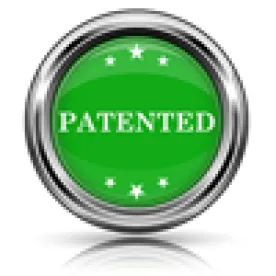On February 4, 2015, the Court of Appeals for the Federal Circuit (CAFC) released a significant decision that clarifies aspects of U.S. Patent Law that have been uncertain under the America Invents Act (AIA). The case is In Re Cuozzo Speed Technologies, LLC (2014-1301).
In affirming the decision of the Patent Trial and Appeal Board (PTAB) for Inter Partes Review IPR2012-0001 that certain challenged claims of U.S. Patent 6,778,074 (“Speed limit indicator and method for displaying speed and the relevant speed limit”) are invalid for being obvious, the CAFC made two significant pronouncements on procedural questions involving the review of patents under the AIA.
As one aspect of the decision, the CAFC held that the PTAB was correct to construe the claims under the “broadest reasonable interpretation” standard, rather than the narrower standard used by federal district courts, of giving each claim term the meaning that the term would have to a person of ordinary skill in the art at the time of the invention, taking into account both intrinsic evidence (the claims, specification, and prosecution history) and extrinsic evidence (dictionary definitions and expert testimony). The result is that claims reviewed by the PTAB, for example in an Inter Partes Review, are more likely to be deemed invalid than if they were reviewed by a federal district court. In reaching its conclusion, the CAFC noted that the U.S. Patent and Trademark Office has applied the broadest reasonable interpretation standard to patent claims for decades, in other types of proceedings, and reasoned that even though the AIA does not specifically mention a claim construction standard to be applied by the PTAB for reviewing the validity of patents under the AIA, Congress intended the standard to continue to be the broadest reasonable interpretation.
As another aspect of the CAFC’s precedential decision, the CAFC stated that the PTAB’s decision to institute a review of a patent under the AIA is final, and cannot be appealed. Specifically, the CAFC pointed to language in the AIA (35 U.S.C. § 314(d)) that expressly states that the PTAB’s decision to institute a review “shall be final and nonappealable.” In particular, the CAFC clarified that this provision of the AIA does not merely postpone review of the PTAB’s decision to institute an IPR until after the PTAB issues a final decision on the validity of claims in a patent. Rather, the provision prohibits review of the PTAB’s decision to institute an IPR even after the PTAB has reached a final decision on patent validity.
In Re Cuozzo Speed Technologies, LLC is the first-ever ruling from the CAFC regarding appeals of PTAB patent review decisions instituted under the AIA. We can expect many more questions arising under the AIA to be addressed in the years to come, as the law continues to evolve.



 />i
/>i

